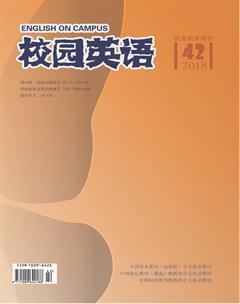Can Quality and Efficiency of Translation be Improved by Online Search Engines?
【Abstract】Search engines are programs that contain large indexes of millions of websites, which is not only beneficial for terminology mining but also for background accessing. Although quality and reliability of search engines are questionable, this essay will attempt to argue that quality and efficiency of translation can be improved as long as translators use them properly.
【Key Words】Terminology; Online Dictionaries; Online Corpora
【作者簡介】湯青媚,武漢晴川學院。
1. Introduction
Various online resources provided by the Internet are either used to extract terminology or as a communication platform. Although information offered by search engines is sometimes lacking in accuracy and reliability, this essay will attempt to argue that translation quality and efficiency can be upgraded if translators apply appropriate search engines.
2. Search Engines and Terminology Sourcing/Mining
The main part of a translators work is to identify equivalence in specialized terms (Bowker, 2002). General search engines such as Google and Yahoo are usually individual ones compiling their own databases on the web. Although they are useful for general information searching, it may be argued that translators are not always able to retrieve the most useful information. Sometimes, after a long period of searching, translators only access irrelevant information. Thus, they can “activate phrases search by enclosing the search words in quotes” (Austermuhl, 2001). Advanced searching can also be applied to improve the efficiency of searching. By specifying the search in various ways, translators can filter out information that does not meet certain criteria and reduce the number of results.
Some search engines are highly specialized in one area or focus on one subject, such as sciencesearch.com, www.eric.de.gov and so on. They are more useful when translators are dealing with more specialized terms and the information they provide is often more reliable. A disadvantage of them is that translators have to search for terms by clicking on different categories that is time-consuming. Accordingly, translators can pay attention to those most useful ones and save them for reuse.
3. Search Engines Contrasted with Online Dictionaries and Online Corpora
3.1 Search engines and online monolingual dictionary
Monolingual online dictionaries mainly focus on offering the expression of a given idea in a given context. Translators are inclined to use them for making sense of how the expression of the term should be used in a specific translation project. However, it sometimes offers inadequate information on how words are used in different contexts. In this regard, the aid of search engines is important since translators can benefit from better understanding the usage of a term and choose the most suitable one in a given context.
3.2 Search engines, online bilingual dictionary and comparable bilingual corpora
Online bilingual dictionaries facilitate translators in understanding a given lexical item in the source text in order to translate it into their own language. The user-friendliest feature of them is they can be coupled with editing environments. Translators can copy and paste the extracted results into their translation workbench, save tying time and avoid spelling mistakes. However, online bilingual dictionaries lack reliability since lexicographers for online dictionaries tend to collect word lists from major general publishers. Thus, translators need the aid of other tools to double-check the validity of information.
A monolingual corpus can help translators choose natural, “native like” turns of phrase that are appropriate to the communicative situation in the target text. Online monolingual corpora are able to provide solutions for specialised terms. However, compared with search engines, the speed to obtain results is not quick enough and sometimes the translator cannot find what they want because of the quantity of corpora entries. Under such circumstances, the translator can “formulate a hypothesis and try to confirm it by querying the Web using search engines” (Zanettin, Bernardino and Stewart, 2003).
4. Conclusion
In conclusion, search engines are indeed helpful in improving the quality and efficiency of translators work since they can obtain valuable and reliable material through applying suitable search approaches. Regarding search engines as the main tool, translators can also refer to other online resources by building up their reference hierarchy, usually from micro level to macro level and then back to micro level.
References:
[1]Austermühl,F.Electronic Tools for Translators[J].Manchester:St.Jerome Publishing,2001.
- 校園英語·中旬的其它文章
- Development of Artificial Intelligence and its Challenges
- Reasons for Rural Literacy in the 1950s
- Discussion on the Application of Cultural Elements in Architectural Design
- The Dialectical Relation Between “Clear Waters and Green Mountains are as Valuable as Mountains of Gold and Silver”
- The Interpretation of Wine Culture in Dickens’ Works
- 論王爾德童話與其唯美主義觀的矛盾

